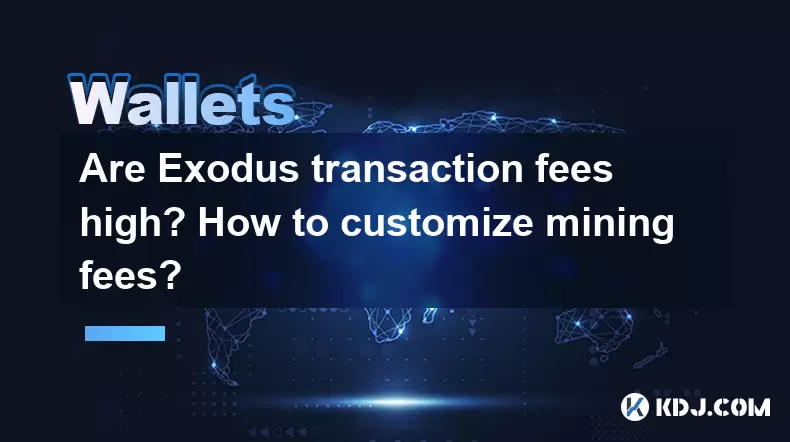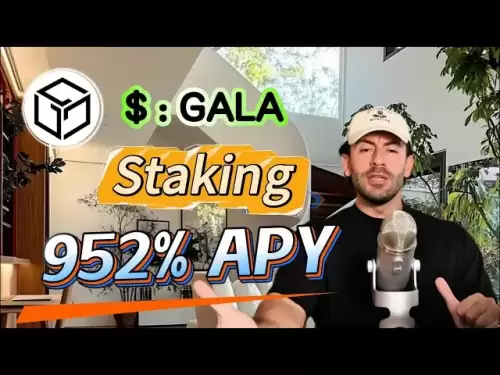-
 Bitcoin
Bitcoin $114500
-0.31% -
 Ethereum
Ethereum $3648
1.11% -
 XRP
XRP $3.033
-0.27% -
 Tether USDt
Tether USDt $0.9999
-0.01% -
 BNB
BNB $758.5
-0.32% -
 Solana
Solana $167.5
1.48% -
 USDC
USDC $0.9998
-0.02% -
 TRON
TRON $0.3331
0.74% -
 Dogecoin
Dogecoin $0.2039
0.25% -
 Cardano
Cardano $0.7419
-0.46% -
 Hyperliquid
Hyperliquid $39.21
2.66% -
 Stellar
Stellar $0.4049
-1.95% -
 Sui
Sui $3.483
-0.56% -
 Bitcoin Cash
Bitcoin Cash $570.8
2.89% -
 Chainlink
Chainlink $16.67
-0.57% -
 Hedera
Hedera $0.2470
-1.57% -
 Ethena USDe
Ethena USDe $1.001
0.00% -
 Avalanche
Avalanche $22.36
1.52% -
 Litecoin
Litecoin $123.4
4.35% -
 UNUS SED LEO
UNUS SED LEO $8.989
0.09% -
 Toncoin
Toncoin $3.324
-2.40% -
 Shiba Inu
Shiba Inu $0.00001219
-1.30% -
 Uniswap
Uniswap $9.811
2.54% -
 Polkadot
Polkadot $3.662
-0.07% -
 Monero
Monero $295.5
-3.85% -
 Dai
Dai $1.000
0.01% -
 Bitget Token
Bitget Token $4.345
0.24% -
 Cronos
Cronos $0.1380
0.95% -
 Pepe
Pepe $0.00001044
-1.14% -
 Ethena
Ethena $0.5981
-4.24%
Are Exodus transaction fees high? How to customize mining fees?
Exodus transaction fees depend on the blockchain's congestion; customize them in the wallet's 'Send' section for better control over speed and cost.
May 11, 2025 at 08:42 am

Are Exodus transaction fees high? How to customize mining fees?
When it comes to using cryptocurrency wallets like Exodus, one of the common concerns users have is the cost associated with transactions. In this article, we will delve into the specifics of Exodus transaction fees, explore whether they are considered high, and guide you through the process of customizing mining fees to better manage your cryptocurrency transactions.
Understanding Exodus Transaction Fees
Exodus is a popular multi-currency wallet that supports a variety of cryptocurrencies, including Bitcoin, Ethereum, and many others. When you send or receive cryptocurrencies, you will encounter transaction fees. These fees are typically charged by the blockchain network to process and confirm your transactions.
The fees in Exodus are not set by the wallet itself but are determined by the underlying blockchain network. For instance, Bitcoin transaction fees are influenced by factors such as network congestion and transaction size. When the network is busy, fees tend to be higher to incentivize miners to prioritize your transaction.
Are Exodus Transaction Fees High?
Whether Exodus transaction fees are considered high depends on several factors, including the specific cryptocurrency you are using and the current state of the network. For example, during times of high network congestion, Bitcoin fees can spike significantly. However, during quieter periods, these fees can be relatively low.
To give you a better understanding, let's look at some general fee ranges for popular cryptocurrencies supported by Exodus:
- Bitcoin (BTC): Fees can range from a few cents to several dollars per transaction, depending on network conditions.
- Ethereum (ETH): Fees are typically measured in gas, with costs ranging from a few cents to a few dollars per transaction.
- Litecoin (LTC): Fees are generally lower than Bitcoin, often ranging from a few cents to a dollar per transaction.
It's important to note that Exodus does not charge any additional fees for transactions beyond what the network requires. This means that the fees you pay are the same as you would pay if you were using the blockchain directly.
How to Check Current Transaction Fees in Exodus
Before customizing your fees, it's helpful to know the current fee rates. Exodus provides a straightforward way to check these fees:
- Open the Exodus wallet on your computer or mobile device.
- Navigate to the Send section for the cryptocurrency you wish to transact.
- Here, you will see an estimated fee for the transaction based on the current network conditions.
This estimated fee gives you a baseline to work from when deciding how to customize your mining fees.
Customizing Mining Fees in Exodus
Customizing mining fees allows you to have more control over the speed and cost of your transactions. Here’s how you can do it in Exodus:
- Open the Exodus wallet on your device.
- Go to the Send section for the cryptocurrency you want to send.
- Enter the recipient’s address and the amount you wish to send.
- Click on the Advanced Options or Transaction Speed section, depending on your version of Exodus.
- Select from the available fee options (e.g., Slow, Medium, Fast) or enter a custom fee if you want more control.
Here’s a more detailed breakdown of the steps to customize your fees:
- Open the Exodus wallet and navigate to the Send section.
- Enter the recipient’s address in the "To" field.
- Input the amount you wish to send in the "Amount" field.
- Click on the "Advanced Options" or Transaction Speed button. This might be labeled differently depending on your version of Exodus.
- Choose from the preset fee options (Slow, Medium, Fast) to adjust the speed and cost of your transaction. Slow fees are cheaper but take longer to confirm, while Fast fees are more expensive but confirm quickly.
- If you want more precise control, select the "Custom" option and enter your desired fee rate. For example, if you're sending Bitcoin, you might enter a fee in satoshis per byte (sat/B).
- Review the total transaction amount including the fee, and click "Send" to confirm the transaction.
Factors to Consider When Customizing Fees
When customizing your mining fees, it's essential to consider several factors to ensure your transactions are processed efficiently and cost-effectively:
- Network Congestion: During times of high network activity, setting a higher fee can help ensure your transaction is processed quickly.
- Transaction Size: Larger transactions (those with more data) may require higher fees to be processed promptly.
- Urgency: If you need your transaction to be confirmed quickly, a higher fee can help prioritize it.
- Cost Sensitivity: If you are more concerned about minimizing costs, you might opt for a lower fee, understanding that it may take longer to confirm.
Tips for Managing Transaction Fees
Here are some practical tips to help you manage your transaction fees effectively:
- Monitor Network Conditions: Use tools like blockchain explorers to keep an eye on current network congestion and adjust your fees accordingly.
- Batch Transactions: If you need to send multiple transactions, consider batching them into a single transaction to save on fees.
- Use SegWit Addresses: For Bitcoin transactions, using SegWit addresses can help reduce fees by optimizing transaction size.
- Plan Ahead: If you know you'll need to make a transaction during a busy period, consider sending it earlier with a lower fee to avoid peak times.
Frequently Asked Questions
Q: Can I change the transaction fee after sending a transaction in Exodus?
A: No, once a transaction is sent, the fee cannot be changed. It's important to set the fee correctly before sending the transaction.
Q: Does Exodus charge any additional fees for using their wallet?
A: No, Exodus does not charge any additional fees beyond the network transaction fees. The fees you see in Exodus are the same as you would pay if you were using the blockchain directly.
Q: How can I estimate the time it will take for my transaction to be confirmed?
A: You can use blockchain explorers or transaction fee estimators to get an idea of the current confirmation times based on the fee you set. These tools can provide estimates based on historical data and current network conditions.
Q: Are there any risks associated with setting very low transaction fees?
A: Yes, setting very low fees can result in your transaction being delayed or even stuck in the mempool if miners do not find it profitable to include it in a block. It's a balance between cost and speed.
Disclaimer:info@kdj.com
The information provided is not trading advice. kdj.com does not assume any responsibility for any investments made based on the information provided in this article. Cryptocurrencies are highly volatile and it is highly recommended that you invest with caution after thorough research!
If you believe that the content used on this website infringes your copyright, please contact us immediately (info@kdj.com) and we will delete it promptly.
- Uniswap Valuation Under the Microscope: Bitwise CIO's Perspective
- 2025-08-05 23:10:12
- Coinbase's $2 Billion Convertible Notes: A Bold Move or Risky Bet?
- 2025-08-05 23:10:12
- Inveniam, MANTRA, and Real-World Assets: Forging a New DeFi Frontier
- 2025-08-05 22:30:12
- Cyprus Investor's $448K Crypto Loss: An Email Hack Wake-Up Call for Crypto Exchanges
- 2025-08-05 22:30:12
- Solana Memecoin Mania: Trader Profit Secrets Revealed!
- 2025-08-05 20:30:13
- POL Price Rebound: Will Consolidation Lead to a Breakout?
- 2025-08-05 20:30:13
Related knowledge

How to add TRC20 token to Trust Wallet?
Aug 04,2025 at 11:35am
Understanding TRC20 and Trust Wallet CompatibilityTrust Wallet is a widely used cryptocurrency wallet that supports multiple blockchain networks, incl...

What is a watch-only wallet in Trust Wallet?
Aug 02,2025 at 03:36am
Understanding the Concept of a Watch-Only WalletA watch-only wallet in Trust Wallet allows users to monitor a cryptocurrency address without having ac...

Why can't I connect my Trust Wallet to a DApp?
Aug 04,2025 at 12:00pm
Understanding DApp Connectivity and Trust WalletConnecting your Trust Wallet to a decentralized application (DApp) is a common process in the cryptocu...

How to fix a stuck pending transaction in Trust Wallet?
Aug 03,2025 at 06:14am
Understanding Why Transactions Get Stuck in Trust WalletWhen using Trust Wallet, users may occasionally encounter a pending transaction that appears t...

What is a multi-coin wallet in Trust Wallet?
Aug 03,2025 at 04:43am
Understanding Multi-Coin Wallets in Trust WalletA multi-coin wallet in Trust Wallet refers to a digital wallet that supports multiple cryptocurrencies...

How to switch between networks in Trust Wallet?
Aug 02,2025 at 12:36pm
Understanding Network Switching in Trust WalletSwitching between networks in Trust Wallet allows users to manage assets across different blockchains s...

How to add TRC20 token to Trust Wallet?
Aug 04,2025 at 11:35am
Understanding TRC20 and Trust Wallet CompatibilityTrust Wallet is a widely used cryptocurrency wallet that supports multiple blockchain networks, incl...

What is a watch-only wallet in Trust Wallet?
Aug 02,2025 at 03:36am
Understanding the Concept of a Watch-Only WalletA watch-only wallet in Trust Wallet allows users to monitor a cryptocurrency address without having ac...

Why can't I connect my Trust Wallet to a DApp?
Aug 04,2025 at 12:00pm
Understanding DApp Connectivity and Trust WalletConnecting your Trust Wallet to a decentralized application (DApp) is a common process in the cryptocu...

How to fix a stuck pending transaction in Trust Wallet?
Aug 03,2025 at 06:14am
Understanding Why Transactions Get Stuck in Trust WalletWhen using Trust Wallet, users may occasionally encounter a pending transaction that appears t...

What is a multi-coin wallet in Trust Wallet?
Aug 03,2025 at 04:43am
Understanding Multi-Coin Wallets in Trust WalletA multi-coin wallet in Trust Wallet refers to a digital wallet that supports multiple cryptocurrencies...

How to switch between networks in Trust Wallet?
Aug 02,2025 at 12:36pm
Understanding Network Switching in Trust WalletSwitching between networks in Trust Wallet allows users to manage assets across different blockchains s...
See all articles

























































































